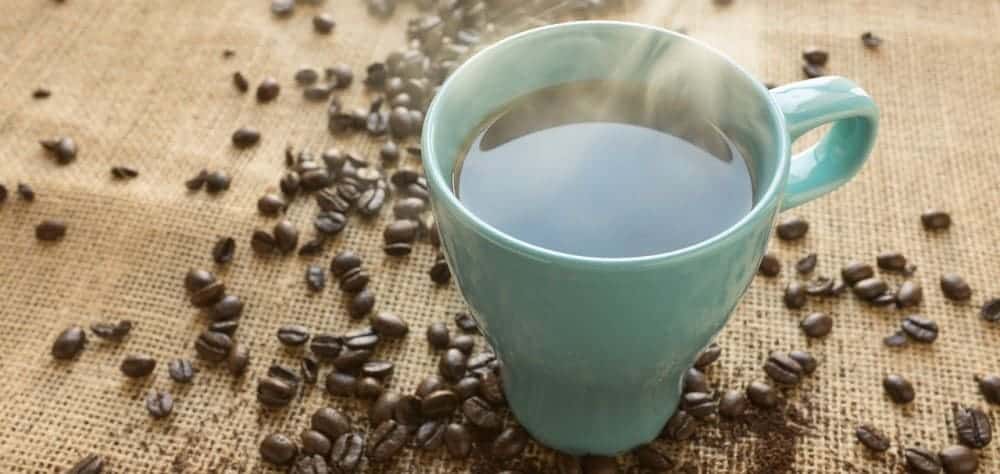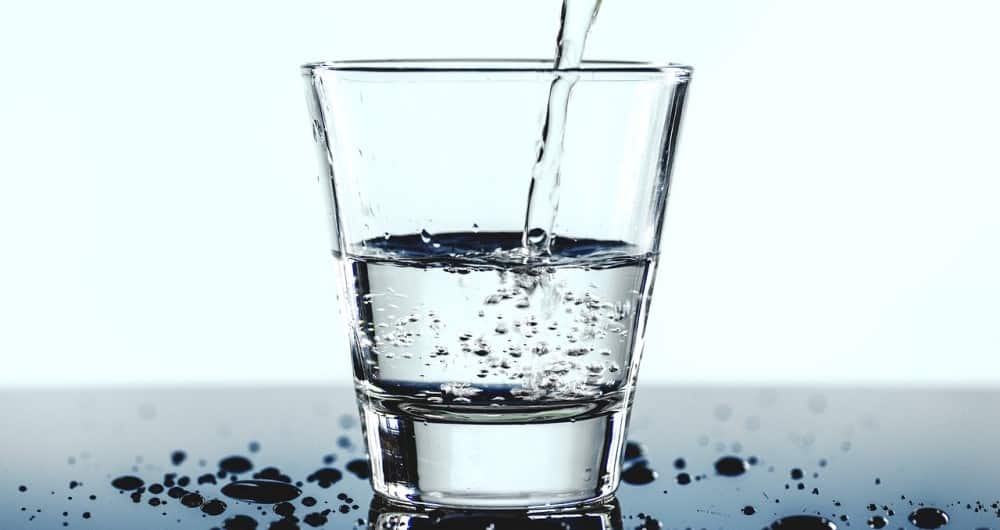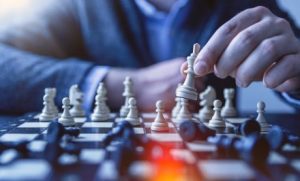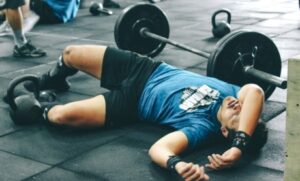Healthy sleep is a slimming agent. As we all know by now, muscles are built during rest time and not while exercising.
On the contrary, lack of sleep can increase your love handles.
In not only slows down your fat loss but also your overall performance. Whether it’s in the gym, at work or ordinary day to day tasks.
Without appropriate regeneration, our performance suffers. We tend to be tired, lacking in drive, uncommunicative, just to mention a few.
In this article, you will learn how to sleep yourself slim, strong and fit.
The worse and less you sleep, the more appetite you have throughout the day. Unfortunately not primarily on broccoli and chicken, but on everything that likes to put on weight.
However, when you have proper sleep, you automatically make better decisions while eating, without following a specific diet.
Self-discipline becomes a less and less important factor.
Moreover, in today’s article, you’ll get answers to the following questions.
- Why sleep deprivation makes you fat in the long run.
- How to use the magic of sleep to wake up refreshed, even when the night may be short
- How much sleep you really need (and how you get it)
- 10 tips for healthy sleep
Does that sound good to you? Then let’s get to work and start with the “why”.

Why does sleep deprivation make us fat?
Allegedly there are supposed to be people who leave sweet things cold.
For some among you, guys, this may sound incomprehensible. Other don’t even get close to the shelves in the supermarket where all those “bad” foods await us.
Personally, I don’t eat many sweets at all, but however, when I eat them I certainly can still enjoy it. There is nothing wrong about it.
As I am convinced of and what I try to communicate with the people I talk to, nutrition is not a solely black or white topic. It’s about a good balance, though.
Unfortunately, too many people somehow try to make rocket science out of simple nutritional basics. Honestly, don’t make it more complicated than it has to be. Stick to the basics, keep the main thing the main thing.
The good news is:
You can eat what you love AND still have the physique you like to have.
Also ice cream, cakes and sweets. Just in the right dose.
You’ve probably already heard about the 80/20 or 90/10 rule. That’s exactly the principle I am talking about.
Of course, you don’t have to weigh every gram you’re eating. Certainly not. But if you construct your diet’s foundation by eating 80% of your meals clean and healthy, there is no shame or regret about eating some ice cream in the evening while watching Netflix with your peers.
However, there is a pretty effective, but little known way to keep your hunger to be reasonable:
Healthy sleep.
Perhaps you have already become aware of how sleep deprivation influences your eating decisions.
Sweet and greasy suddenly becomes more attractive.
A study conducted by London’s Kings College confirms this. The scientists observed how better sleep helps to automatically eat less sugar, fewer calories and fat.
To do so, they looked at people who used sleep less than 7 hours a night.
Some of the volunteers to tips for healthy sleep (no caffeine before going to bed, going to bet at the same time every night, less screen time in the evening etc.).
Then it was to time wait and watch.
First realization: On average, the subjects who had been given sleep tips slept 50-90 minutes longer each night.
However, it is particularly fascinating how their eating behaviour changed.
The long sleepers ate 10 grams less sugar per day than usual. Moreover, the researchers found that at the end of the day, the participants consumed 170 calories less than before, which is about 5-10% of their daily caloric requirement.
Not bad for not having to worry about their diet, right?
Hunger does not start in your stomach, but in your brain. And not surprisingly, the brain chemistry changes if you suffer from sleep deprivation.
In other words, lack of sleep makes food that you should eat less of, particularly attractive to you.
In fact, a single night with too little sleep is already enough to cause this effect.
Why do we often like fast food late at night, rather than broccoli? In any case, the factor “tiredness” would a reasonable explanation for this.
Now let’s get to the root of sleep deprivation.

How to sleep better and wake up refreshed – even if the night is short
Have you ever woken up feeling absolutely whacked, even though you actually slept long enough?
Pretty paradox, right?
But don’t worry, researchers found an explanation for that.
Your body (and your brain) go through different sleep phases every night.
Two of the most important are:
- deep sleep
- REM sleep (dream sleep)
Deep sleep servers your body. Growth hormones are released, which are necessary for regeneration and building muscle.
Researchers also suspect that the immune system is being repaired during you being in deep sleep.
Thus, deep sleep is obviously important for our physique, to look good.
Or if you just want to be a better athlete. That’s why most professional athletes are “hardcore long sleepers – like Roger Federer, who sleeps 11-12 hours per night.
REM sleep serves the mind.
In the remaining sleep phases, the brain is relatively quiet, but now it comes to life. Processing information and reorganizing them.
Basically, REM sleep is important for learning and brain health.
You are more emotionally more stable and mentally more efficient.
Whether you feel recovered depends not only on the duration and quality of your sleep, timing also comes into play.
A single sleep cycle takes about 90 minutes. Albeit, the first sleep cycle is a little shorter with about 60 minutes.
Nevertheless, both values are neither exact nor do they apply to each and every one of us. Therefore, it is quite possible that your sleep cycles may differ by a few minutes.
What happens if you do not wake up at the end of a sleep cycle, but in the middle of it? It’s the Monday morning feeling:
When the alarm rings at the wrong time, you feel tired, chipped and thin-skinned.
Scientists assume that “sleep-induced sluggishness” has a greater negative effect than a pure sleep deficit.
Here is the solution:
Plan your waking-up time.
This will prevent you from waking up in the middle of a sleep cycle. Since sleep cycles last about 90 minutes each, you can set your alarm clock in 90-minute increments.
Five to six complete sleep cycles are usually ideal. This results in seven to eight and a half hours.
The best way to test the duration of your sleep cycles is certainly on the weekend or on vacation, where you most likely wake up without an alarm clock.
For most people, the average model with 60 minutes fits and 90 minutes otherwise alike.
Thus, sometimes less sleep is even more.
If you have less than seven hours, it is better to get up at the end of the fourth cycle. So most people are fitter when they get up after five and a half hours than after six or six and a half hours.
A light alarm clock can help you to time your awakening at the right moment.
How does it work? The light alarm clock starts 30 minutes before the initially scheduled wake-up time to stimulate a sunrise and illuminate your bedroom daylight.
You feel more rested and get under way faster in the morning.
So much for the timing and duration of healthy sleep. Let’s talk about the quality now.
6 Obvious reasons why you don’t wake up refreshed
It is quite possible that you already know the following six sleep disturbances.
In any case, you should know them.
So let’s just check them off, before we address the lesser known sticking points.
1. Alcohol
A little drink in the evening and you sleep even faster, right?
In many cases, that’s true.
But there’s a catch: Alcohol lowers sleep quality and delays the REM sleep phases.
You fall asleep faster, but wake up less well recovered.
If you wake up the next day and want to control your hunger hormones, you should better abstain from alcohol.

2. Caffeine (and other stimulants)
Your body releases messengers to signal, “I need sleep!”
When enough of these hormones dock with the receptors in your brain, you feel that you’re getting tired.
Caffeine blocks these fatigue receptors.
It pretends to your brain that you are perfectly well rested.
Which is sometimes practical. Unless you want to fall asleep later in the day.
The half-life period of caffeine is between five and seven hours.
Suppose you drink another espresso at 7:30 pm after dinner as a nightcap. Or a cup of black tea. Then 50% of the caffeine could still be active in your brain at 1:30 at night.
Caffeine in the evening is poison for your sleep.
If you are more sensitive, you should enjoy the last caffeinated drink earlier in the afternoon.
3. Screens
Daylight keeps you awake. Screens do so too.
That’s why you should in the evening – relinquish one to two hours before going to bed – on the bright light of TV, mobile phone, notebook and Co.
If you can not (or want to), you can still do something for healthy sleep:
Dim the display brightness as much as possible.
That way you give your body the chance to realize that the day is over.
4. Heat (and cold)
Your bedroom should be neither too hot nor too cold. The perfect room temperature is about 16-18?C.
In the heat, you sweat – and sleep less deeply. If it’s too cold, your muscles will contract. That also affects your sleep.
5. Noises
A quiet environment is important for your sleep.
If it’s hard to keep calm, try controlling the noise in your bedroom with “white noise” – for example with a fan.
Or you use earplugs. These are good.
6. Thought carousel
Have you ever solved a problem by thinking about it before falling asleep?
The fact is: If you let your thoughts go and drive with your problems, the thing about falling asleep will be difficult.
Relaxing “pattern breakers” help you to let go and relax.
Here are a few examples:
- Listen to music
- Read
- Sex
- Audiobooks
- Podcasts
- Meditation
- Gratitude Diary
To come off best with (audiobooks) and podcasts you should not listen on thriller and consorts. After all, it’s all about relaxation.
Once you have these five basics under control, you should tackle a few less obvious sleep stoppers.
4 Things that most people do not know about healthy sleep
The following sleep disturbances are less obvious.
But they are just as important. Because they can lead to serious sleep problems.

1. Do you drink timely?
If you want to be (and stay) strong, slim and fit, you should drink enough water. Three to four litres are a good rule of thumb for athletes, even if there are individual differences.
However, if you drink too much too late, you’ll quickly get disturbed in the night.
With a full bladder, it just does not sleep so deeply.
This can affect the quality of sleep – and you will notice that the next day.
Your body can store fluids for about six to eight hours. Hormonal changes in old age can shorten this time span.
That’s why you should develop routines that will let you sleep through.
No matter how old you are.
Here’s a good start:
It would be best if you abstain from drinking for 1-2 hours before falling asleep.
You should also make smarter drinking decisions. Everything that dehydrates you should be avoided shortly before going to bed.
This is especially true for alcohol.
2. Are you eating too late?
To clear up with a common myth:
Eating in the evening does not make you fat.
Anyway, no more, no less, than at any other time of the day. Crucial is the daily calorie balance.
Nevertheless, too late eating can indirectly hinder weight loss.
Namely, if it affects your sleep quality.
After eating, your body releases “C-Peptide” – a protein that helps the storage hormone insulin deliver nutrients to where your body can best utilize them.
The catch of nightly snacks: C-peptide is associated with a low level of melatonin – the hormone that is supposed to signal your body: it’s night. Go to sleep. Late eating could push your day-night cycle backwards.
On the other hand, a growling stomach can keep you awake as well.
Most of us sleep best if they do not eat a feast before falling asleep.
And if you’re hungry before bed, it’s best to eat a small, digestible snack.
3. Do you have enough vitamin D (but not too late)?
Depending on the study, 50-90% of Germans are inadequately supplied with vitamin D.
Vitamin D deficiency is associated with sleep disorders.
Researchers have observed in various studies that people with too low levels of vitamin D sleep worse, wake up more often at night, and sleep less often.
They suggest that vitamin D plays a role in sleep regulation. So, from this perspective, it’s a good idea to get optimal vitamin D levels.
However, vitamin D intake in some people paradoxically also affects sleep quality. Namely, if you take the sun vitamin right before bedtime.
Vitamin D in the evening may affect sleep quality.
Researchers suggest that vitamin D may inhibit melatonin release. This sounds understandable as your body normally makes vitamin D when the sun is shining.
That’s why I recommend vitamin D intake for breakfast or lunch.
I use this supplement and take it daily with my first main meal.
Note: Like all fat-soluble vitamins, you can also overdose Vitamin D. Studies show that 2,000 to 4,000 IU of vitamin D are safe each day without a diagnosed deficiency. However, if there is a deficiency, a higher dose may be appropriate.
4. Do you soak up the sun?
Just because you take vitamin D does not mean that you should not go outside.
Sleep is a natural part of your circadian rhythm.
Your day-night rhythm is also a reaction to external factors such as daylight and sunlight.
Because your brain interprets the blue light components of electronic devices as daylight, you should switch them off in the evening. Otherwise, your body releases less melatonin and you just will not get tired.
But for healthy sleep, your body also needs to have a chance during the day to realize that it is daytime.
When it is day, you should also see (and feel) the light.
Outdoors, since windows filter out a large portion of the radiation. Thus you support the natural daily rhythm of your body:
You are more awake during the day and sleep better at night.
And without artificial aids.
It’s best to use the opportunity to get in contact with sunlight as early as possible in the day – for example, by taking a walk in the morning after getting up.
Although light therapy devices like this have a similar effect, they should only be an emergency solution.
Closing thoughts
Healthy sleep is a necessity. Who wants to lose weight, has to sleep. Long enough and deep enough.
If lack of sleep has been the hurdle that separated you from your goal, you are – firstly – in good company and, secondly, you can do something about it.
Here is your checklist for healthy sleep:
- Spend time in daylight. The best is a walk or an outdoor training session.
- Ensure sufficient vitamin D. A good preparation meets the medical quality standards and also provides vitamin K2.
- No major meals and drinks 1-2 hours before bedtime. No reason to be afraid of late snacks, but you should develop an awareness.
- Set your alarm clock after your sleep cycles. The first sleep cycle lasts about 1 hour, then it is about 1.5 hours.
- Give up alcohol and caffeine in the evening. Especially if your sleep quality is still expandable.
Of course, you do not have to implement all the points at once. It’s best to start with the measure that is easiest for you.
And so step by step build up routines that ensure healthy sleep. As a result, you wake up in the morning more refreshed and energetic, build off fat more easily and muscles on – and you feel just better.
What is experience with sleep deprivation? How did you handle it? Have you any tips that are not addressed in this article?
Drop a comment below and engage with us!
Thanks for reading, guys
Claas




